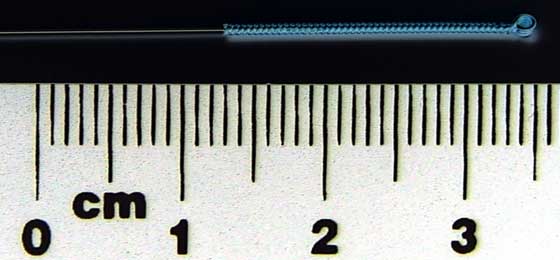 The Internal Revenue Service has allowed acupuncture to be deducted as a medical expense since 1973.
The Internal Revenue Service has allowed acupuncture to be deducted as a medical expense since 1973.
Source: Frum, David (2000). How We Got Here: The ‘70s. New York, New York: Basic Books. p. 133. ISBN 0465041957.
 The Internal Revenue Service has allowed acupuncture to be deducted as a medical expense since 1973.
The Internal Revenue Service has allowed acupuncture to be deducted as a medical expense since 1973.
Source: Frum, David (2000). How We Got Here: The ‘70s. New York, New York: Basic Books. p. 133. ISBN 0465041957.
“This is a result of the difficulty in creating an appropriate controlled, double-blind testing situation. Acupuncture is an invasive treatment, so it’s hard to design an effective placebo control group for a study the way standard double blinding practices are used in trials for new drugs. Acupuncture is also a process, not a pill. A process has a lot of variables, including the influence of the acupuncturist, which is a major factor. Blinding both the acupuncturist and the patient as to the treatment being given is a challenge.” Read More on Huffington Post

From a recent NY Times piece:
“Rather than proving that acupuncture does not work, in other words, the study may suggest that it works even when administered poorly. But the real lesson, acupuncture supporters say, is how difficult it can be to apply Western research standards to an ancient healing art.”

Taken as a supplement, ginger appears to reduce exercise-induced muscle pain by about 25%, according to a study in the Journal of Pain. The study showed no difference between raw ginger and heat-treated ginger.

Researchers are now saying that adenosine, a pain killer that the body naturally produces, plays a role in acupuncture’s pain relieving ability (at least in mice). One interesting note for practitioners is that, according to this study, “the acupuncture needles must be periodically rotated during the treatment for the positive effects to take place. If the needles were just left in the mice for 30 minutes, there would be no pain alleviation.” You can read more about the research here and here.
A substantial number of American couples are looking beyond just state-of-the-art fertility treatments to therapies dating back centuries in hopes of improving their chances of conceiving a baby, according to new research.
Read more on Reuter’s.